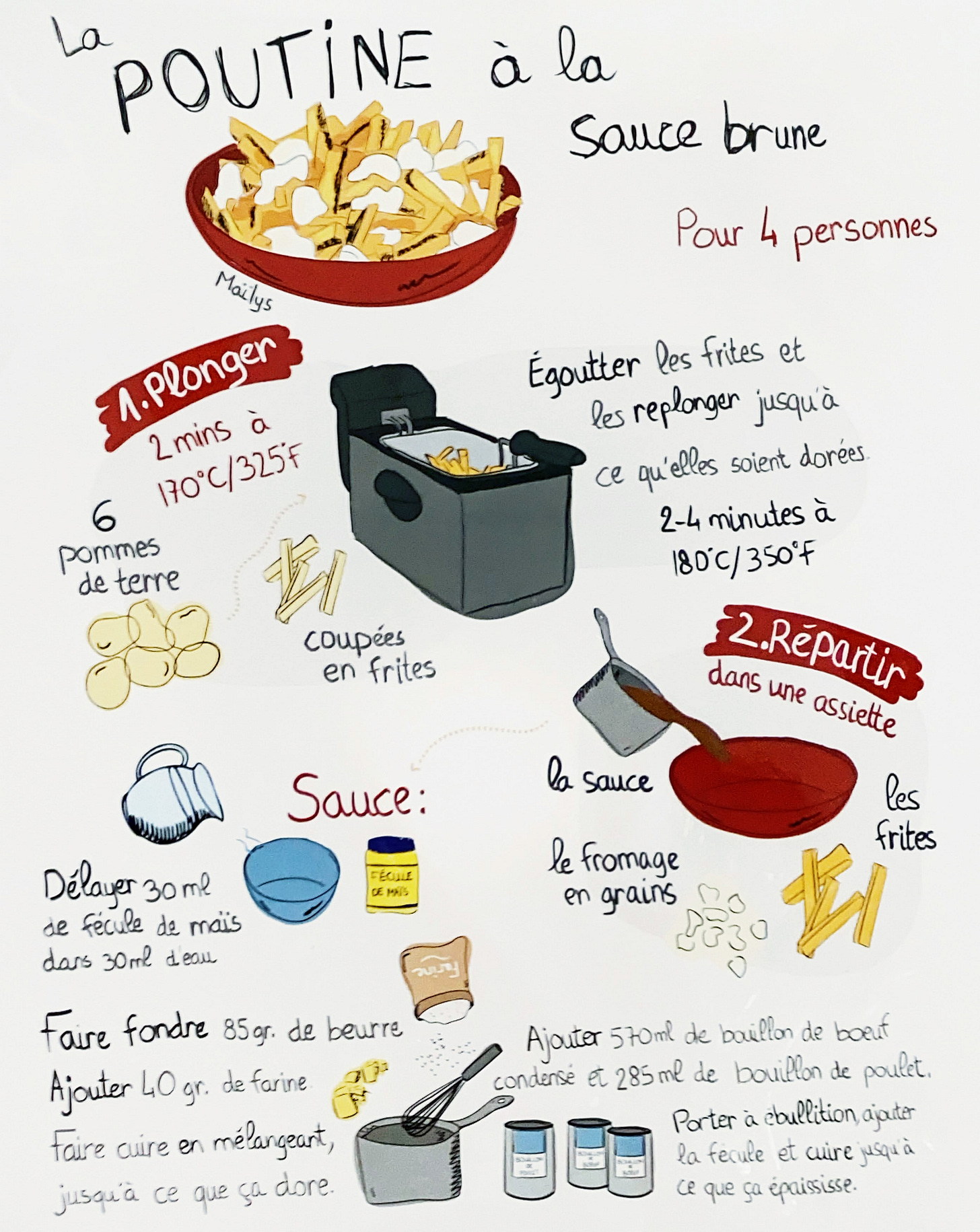
Taz and I went to Montreal for Just for Laughs comedy festival last week. I had a jolly time, but I also felt another emotion I couldn’t pin down, like something was missing or just outside of my peripheral vision. Once in a while that feeling will wash over me, melancholic and uneasy, and I don’t ever figure out why; this time, I have a theory. But more on that later.
This was the longest visit I’ve ever made to Montreal, and when we weren’t at shows, we were eating or exploring neighborhoods by foot. With Just for Laughs, the Osheaga music festival, and the International AIDS Conference all happening then, the streets were teeming. Montreal gives off young energy: artsy students lolling about, wearing bright pants, being artsy.
I like Toronto, but as soon as we got to Montreal I could feel a difference in the air. Toronto is the financial center of Canada, and it shows. There’s a button-upped-ness that I didn’t notice before, because I’m rather used to buttoned-up places. Not everywhere in Toronto feels stiff, of course, but in comparison, Montreal freely flowed every place we went.
“Oh, I like this even more,” I thought.
It was pleasant to walk around and feel the buzz. Whether noon or midnight, there were always people going places on the streets. Also: not much dog poop on the ground, which makes walking around just a little less stressful. We took the subway several times and never had to wait more than five minutes for clean trains with no scary people onboard. Montreal seems like a pretty livable city (though perhaps I would feel differently if we visited in the middle of its long winter).

Also, every meal we had in Montreal was great, and relatively inexpensive compared to the Bay Area. Yet Montreal is regularly left off of the world’s best food cities lists. It just made me wonder how many other cities don’t have the flash—or price tag—of a Paris, New York, or San Francisco, but are just as delicious and dynamic?
I love British comedy, and the three shows we caught were all British—one was literally called “Brit(ish).” The first and best was James Acaster’s new set, “Hecklers Welcome.” He lay the ground rules at the beginning of the show: hecklers indeed welcome, looking at your phone during the show was fine, but no hate speech, hitting, or throwing things. Our Canadian crowd played nice—people did shout comments but there was no actual heckling. Acaster would have a back-and-forth with these audience members and incorporate it all into his show. It felt natural, but some of it must have been bits that he rolled seamlessly into the conversation.
He said he was performing this way because his last special—which is a very personal but funny account of his mental health experiences—was carefully crafted and took years of work, but would often get thrown off course by someone in the audience yelling catchphrases (or worse) while he was in the middle of a serious set-up. It made him dread performing, this lack of control over what he had worked so hard on. So he decided to conduct an experiment by explicitly allowing and expecting hecklers. A sort of exposure therapy.
That’s bold, isn’t it. He changed one of the basic rules of stand-up, because the model wasn’t serving him well. But also, he was ready for the experiment—he could only purposefully introduce hecklers into his set after years of honing the skills to deal with them and still stay funny.
I wonder whether, with a less Canadian and more unruly crowd, his show ever goes off the rails? But I guess even then, Acaster has set the parameters. The hecklers were going to heckle anyway; he’s just created the boundaries around where they can play.
I love watching live comedy. When it’s really good, you never quite know what’s going to happen next.
(Bonus celeb sighting: Bob Odenkirk was in the row ahead of us at Acaster’s show!)
For years, Taz and I have talked about how we should structure our lives—whether we would stay in California, or try to split our time between locations, or leave altogether. As with most big decisions, it’s really impossible to imagine how we might like each choice; we just have to go do it to find out.
As this year unfolds, I’m checking in every so often on my feelings about where I am. I’ve always held that I’d like to keep one foot in California even if we temporarily leave, partly because we have family there and partly because I couldn’t imagine not eventually living there again. As I reflect now, about 1.5 months into our time away, I find I miss family and friends but not much else about home. Well, maybe our Toto Washlet. I still maintain I want to keep a place in California because our people are there. But can I imagine not living there again? A tiny bit I can.
Montreal reminded me that I like walking through a city that is young and full of street art, where prices are not astronomical, where you can leave belongings visible in the car and not worry they’ll be stolen in broad daylight. I realized I still love cities and wouldn’t mind living in one again. What I’d thought was me being done with city living was perhaps actually me being done with one particular city.
Of course I’ve visited vibrant, livable cities before, but this time is different. This time we are more deliberately conducting an experiment in places and ways of living. Prior to starting our year away, I could be glib about moving around and worldschooling, how exciting it’d be and how much we’d learn. Now we are living the experience where we are consciously observing the pros and cons of each environment, and comparing them to where we’ve been. Asking ourselves if what we’ve known has served us well.
Are we ready for whatever the answers are? Am I?
You know that unease I had while walking around Montreal? My theory is that maybe it’s my brain working through some subconscious insights. Maybe somewhere deeper than my surface brain activity is the place where uncomfortable realizations occur, such as the realization that an old model we’ve lived with might not be working, it might actually not be serving us well. And realizing that, would mean realizing we have to make some changes. I’m not sure I’m ready for that yet, regardless of what my subconscious has to say.
Pretty Good Things
Here are some British comedians I saw at Just for Laughs.
James Acaster
Start with his 4-part Netflix stand-up special “Repertoire.” When the show came out, Kumail Nanjiani tweeted “He’d inspire me to do stand-up if I wasn’t already doing stand-up,” and I checked it out based on his recommendation. Acaster immediately became one of my favorite comedians. He also has two podcasts, Off Menu (guests come into the dream restaurant to riff on their ideal menu) and James Acaster’s Perfect Sounds (for you music lovers—he believes 2016 was the best year for music, and each week he introduces a guest to an obscure record from that year).
Phil Wang
I’m a Patreon supporter of two projects—one is Jodi Ettenberg’s blog, which I’ve covered before, and the other is the Budpod podcast. Phil Wang co-hosts the podcast with fellow comedian and friend from University of Cambridge Pierre Novellie. They chat about everything highbrow and lowbrow, but somehow the theme has evolved over time to be mortifying scatological stories.
It’s nerds talking turds! (not their actual tagline but maybe it should be.)
Adrian Bliss
I saw Adrian Bliss on the street one evening in Montreal, walking to a comedy show. He was wearing a shirt covered in big pink flowers. I looked him in the eyes for a moment and he quickly ducked his head and stared at his feet. It was a satisfying encounter with the Youtube and TikTok comedian, whose trademark is awkwardness. I started watching him a few years ago when he put out long-form Youtube series. Now he concentrates on shorts, but my favorites are still the long videos with story arcs.








that tomato, plum and halloumi salad looks and sounds amazing!!